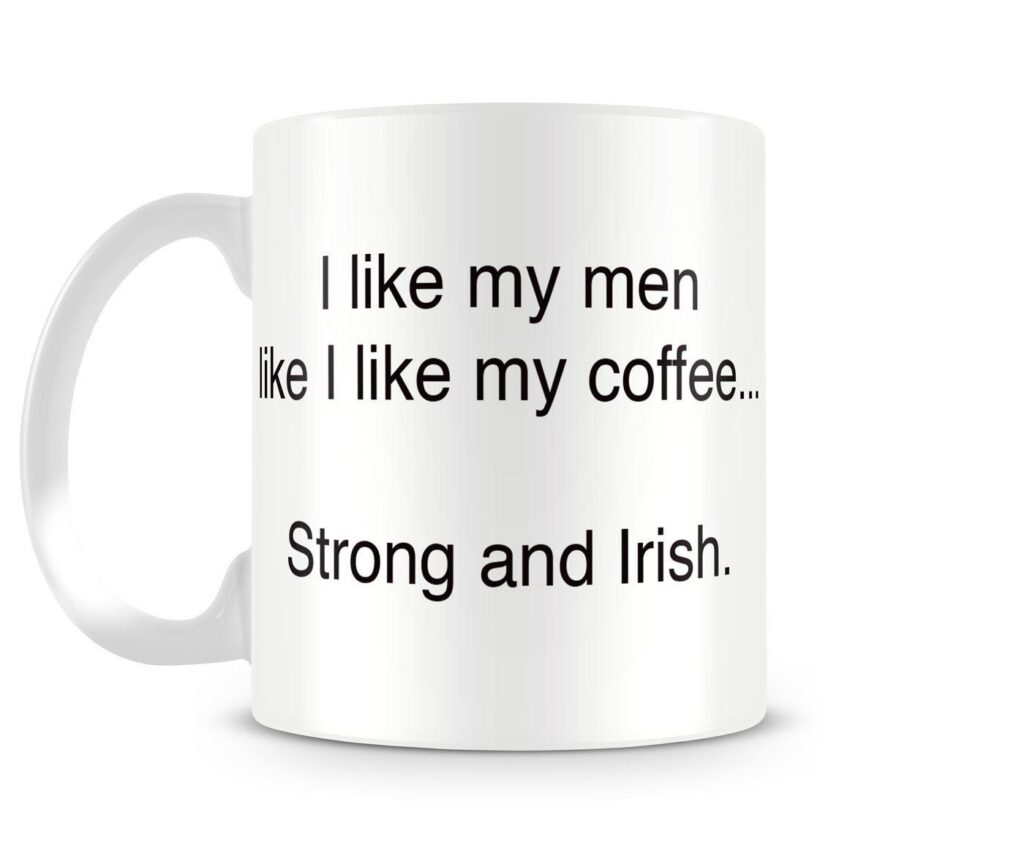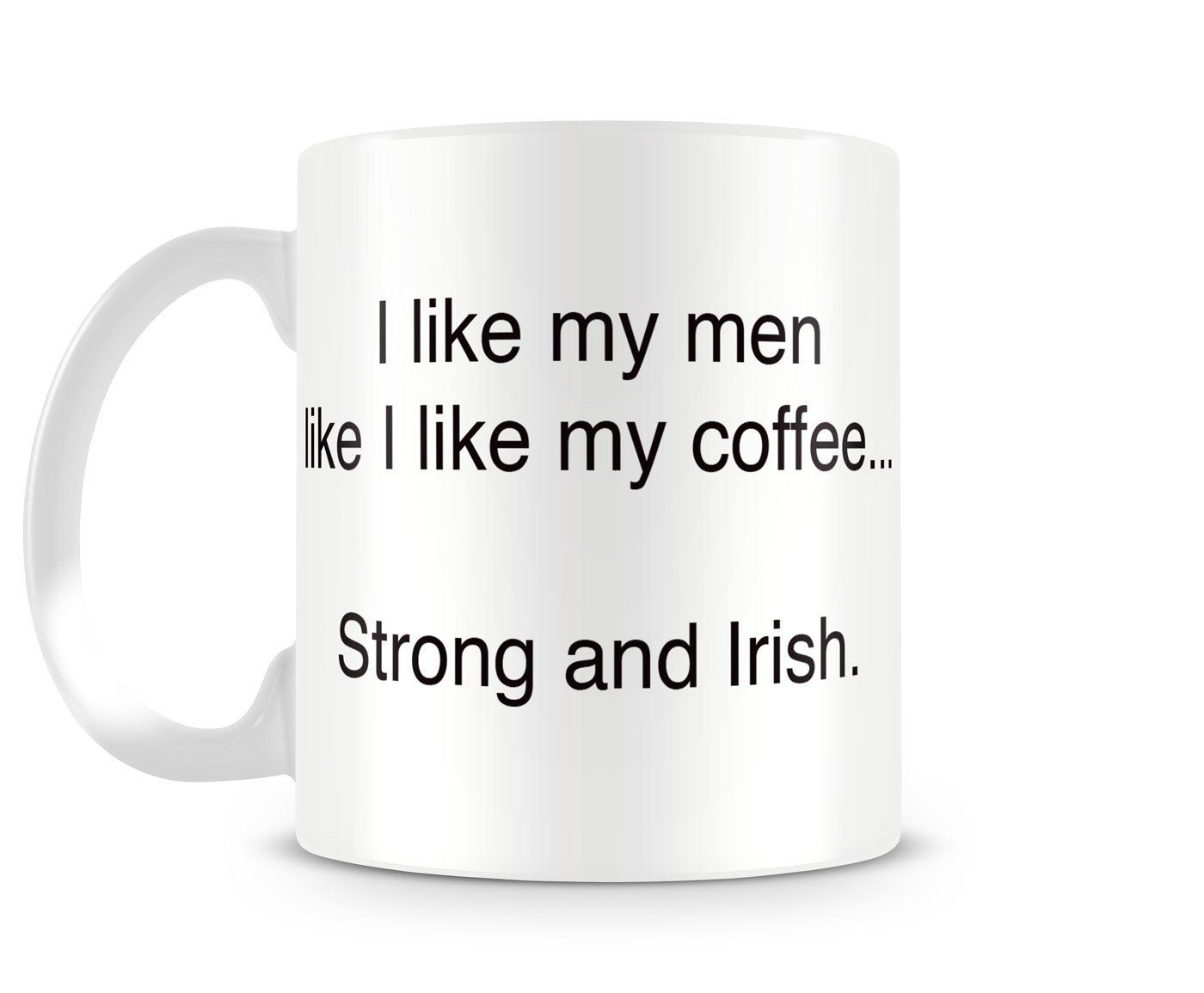
I Like My Coffee Like I Like My Men: A Deep Dive into a Meme’s Cultural Resonance
The internet is a vast and ever-evolving landscape, a digital ecosystem where trends are born, flourish, and fade with astonishing speed. Yet, some phrases, images, and concepts manage to transcend the fleeting nature of online culture, embedding themselves in the collective consciousness. One such example is the meme, “I like my coffee like I like my men.” This seemingly simple statement has sparked countless variations, interpretations, and discussions, proving its remarkable staying power. But what is it about this phrase that resonates so strongly? This article delves into the origins, evolution, and cultural significance of this enduring meme, exploring its humor, its potential for social commentary, and its reflection of evolving societal norms.
The Genesis of a Catchphrase
While the exact origin of the phrase “I like my coffee like I like my men” remains somewhat murky, its initial appearance can be traced back to the early days of internet humor. The phrase’s appeal lies in its inherent ambiguity, allowing for a multitude of interpretations. The most common interpretation, of course, plays on the contrast between the expected qualities of coffee and the often-desired qualities in a romantic partner. Coffee, in its various forms, can be black, strong, bitter, and perhaps even a little complex. Men, according to this interpretation, are thus analogized as preferably dark, robust, and perhaps even a little challenging. This contrast provides the foundation for the meme’s humor. It’s a playful, often sarcastic, take on preferences, using the familiar language of coffee to comment on the complexities of relationships.
Unpacking the Humor: Dark, Strong, and… What Else?
The beauty of the “I like my coffee like I like my men” meme lies in its adaptability. The core phrase serves as a template, a starting point for a range of humorous and often insightful variations. These variations typically focus on the adjectives used to describe the coffee and, by implication, the desired characteristics of a partner. Some common variations include:
- “I like my coffee like I like my men: Ground up and in the freezer.”
- “I like my coffee like I like my men: Hot, strong, and willing to keep me up all night.”
- “I like my coffee like I like my men: Sweet and doesn’t judge me.”
These examples demonstrate the meme’s flexibility and its ability to be tailored to individual preferences and perspectives. The humor often stems from the unexpected juxtaposition of the two seemingly unrelated concepts, coffee and men, and the playful exploration of stereotypes and expectations. The phrase is also a form of self-deprecating humor, acknowledging the complexities of relationships and the often-unrealistic expectations placed upon them.
Beyond the Laughs: Social Commentary and Cultural Reflection
While the primary function of the “I like my coffee like I like my men” meme is to elicit laughter, it also serves as a subtle form of social commentary. The variations often reflect evolving attitudes towards relationships, gender roles, and personal preferences. For instance, variations that emphasize independence and self-sufficiency can be seen as a commentary on changing expectations around relationships and the increasing value placed on personal freedom. Others may reflect the complexities of modern dating, the challenges of finding a compatible partner, or the often-contradictory desires that people have when it comes to relationships.
The meme also reflects the way humor is used to navigate sensitive topics. By framing relationship preferences in the context of coffee, the meme allows individuals to express their views in a lighthearted and accessible way. This can be particularly effective when dealing with potentially controversial subjects, such as preferences related to race, age, or personality traits. The humor acts as a social lubricant, making it easier to discuss these issues without causing offense.
The Meme’s Enduring Legacy: Why Does It Still Resonate?
The continued popularity of the “I like my coffee like I like my men” meme can be attributed to several factors. First and foremost, its simplicity and adaptability make it easily shareable and remixable. The phrase is concise and memorable, lending itself to quick and easy consumption on social media platforms. The open-ended nature of the phrase also allows for endless creativity, with users constantly generating new and inventive variations. The meme’s relatability is another key factor. The complexities of relationships are something that virtually everyone can relate to, regardless of age, gender, or background. The meme taps into this shared experience, providing a common ground for humor and connection. Finally, the meme’s cultural relevance has been sustained by its ability to reflect and respond to changing social trends. As societal attitudes towards relationships evolve, the meme adapts, providing a platform for new perspectives and interpretations. The phrase “I like my coffee like I like my men” has become a cultural touchstone, a testament to the enduring power of humor and its ability to connect people across generations.
Analyzing the Meme’s Structure and SEO Implications
From an SEO perspective, the phrase “I like my coffee like I like my men” offers several opportunities. The phrase itself is a long-tail keyword, meaning it is more specific and less competitive than broader terms like “coffee” or “men.” This makes it an ideal target for content creation. The use of the phrase in the title, the opening paragraph, and throughout the article helps to signal to search engines that the content is relevant to this specific query. The inclusion of variations and related terms, such as “dating,” “relationships,” and “humor,” further enhances the article’s SEO value. The article’s comprehensive coverage of the topic, including its origins, humor, social commentary, and cultural relevance, helps to establish it as a valuable resource for anyone searching for information on the meme. The use of headings, subheadings, and lists also improves the article’s readability and helps search engines understand its structure.
The Future of the Meme: Adaptation and Evolution
The internet is a dynamic environment, and memes, by their very nature, are subject to constant change. The “I like my coffee like I like my men” meme is likely to continue evolving, adapting to new trends and social contexts. It may be remixed with other popular memes, incorporating new slang or references. The phrase may also be used as a springboard for more complex social commentary, addressing issues such as gender identity, sexual orientation, and body image. The meme’s future will be shaped by the creativity of its users and the ever-changing landscape of online culture. One thing is certain: the phrase “I like my coffee like I like my men” has already secured its place in internet history. It is a reminder of the power of humor to connect people, to reflect on our shared experiences, and to navigate the complexities of modern life. The continued relevance of this phrase shows how a simple statement can become a significant cultural phenomenon. It is a testament to the power of the internet to create and disseminate ideas, to spark conversations, and to shape the way we understand ourselves and the world around us. The meme serves as a lens through which we can examine our evolving perspectives on relationships, gender roles, and the ever-changing landscape of social interaction.
Conclusion: A Brew of Wit and Wisdom
The “I like my coffee like I like my men” meme is more than just a fleeting internet trend. It is a cultural artifact that reflects the complexities of human relationships, the power of humor, and the ever-evolving nature of online communication. From its simple origins to its diverse variations, the meme has captured the attention of millions, sparking laughter, conversation, and reflection. The phrase’s enduring appeal lies in its adaptability, its relatability, and its ability to tap into our shared experiences. It is a reminder that even in the digital age, a few well-chosen words can have a lasting impact. The meme continues to evolve, reflecting and responding to changing social trends. As societal attitudes shift and the internet landscape continues to change, the phrase “I like my coffee like I like my men” will undoubtedly find new ways to resonate with audiences. The meme’s ongoing popularity is a testament to the power of humor and its ability to connect people across generations and cultures. This phrase, and its many variations, is a cultural phenomenon that has earned its place in internet history.
[See also: The Psychology of Memes, The Evolution of Internet Humor, How Social Media Shapes Our Relationships]


